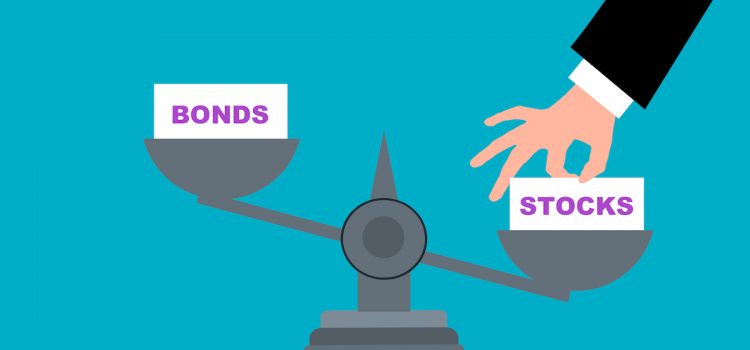

This article is an excerpt from the Shortform book guide to "Beating the Street" by Peter Lynch. Shortform has the world's best summaries and analyses of books you should be reading.
Like this article? Sign up for a free trial here.
Are stocks better than bonds? Which investment carries a greater risk?
Despite their reputation as a riskier and more volatile investment, stocks have significantly outperformed bonds over the long term. Peter Lynch explains how bonds work and details some of the main risks that come from investing in them. Then he outlines why he promotes stocks as a superior investment.
Keep reading to understand Lynch’s argument and to get a different perspective from Vanguard founder John Bogle.
How Bonds Work
Are stocks better than bonds? Why do many investors think that bonds are less risky than stocks? To answer these questions, it’s useful to briefly explain first how bonds work. A bond is a debt obligation issued by a borrower—with the borrower usually being a corporation, a state or municipal government, or the US Treasury. These entities issue bonds to raise capital. When you purchase a bond as an investor, you’re loaning money to the bond issuer, which pays you back with interest.
We can illustrate how bonds work with an example. When you buy a $1,000 bond from the issuer, it typically pays out interest at a fixed rate (the coupon rate) for a specified period of time. At the end of this period, the bond purchaser receives the full $1,000 value of the bond (the face value). So if your one-year $1,000 bond pays out 5% interest, you’ll receive a 5% ($50) interest payment after six months (the coupon date). After one year, the bond will reach its maturity date, when the face value of the bond comes due and you’ll be paid back the $1,000 face value. So, over the course of your investment, you’ll have earned a 5% return on $1,000.
The Risks of Bonds
This simple illustration of bonds makes them seem like an attractive, low-risk, low-stress investment. But, warns Lynch, bonds are actually fraught with risk because their real returns are highly vulnerable to 1) inflation, and 2) interest rate changes.
Inflation
Inflation is when prices rise across the economy. So, a basket of goods that you could buy for $10 last year might cost you $12 under inflationary conditions this year. And, warns Lynch, that spells trouble for fixed-income investments like bonds. Remember, your bond coupon payments will pay the same fixed rate of interest throughout the life of the bond until it reaches maturity. But, if prices are rising during that time, the real purchasing power of those fixed payouts will decline: Your fixed $50 coupon payment buys you less as prices rise.
Interest Rate Changes
Changes in the general interest rate can also erode the value of your bond investment, cautions Lynch. To understand this, we also need to understand that, in addition to holding on to your bond until the maturity date, you can also sell your bond to a third party before it reaches maturity.
But, there’s an inverse relationship between bond prices and interest rates. When interest rates go up, bond prices go down. This is because when interest rates rise, investors have an opportunity to purchase newly issued bonds that pay a higher interest rate. Because they have this opportunity to earn higher bond returns elsewhere, they’re only going to buy your older, lower-interest bond at a discount. So if you want to sell your bond before it reaches maturity, you run the risk of selling it below face value, depending on the interest rate at the time.
Why Stocks Are Better Than Bonds
These bond risks, writes Lynch, highlight why stocks are the superior investment option over bonds. He writes that the historical performance of the stock market, as measured by popular stock indexes like the S&P 500, Dow Jones Industrial Average, and Nasdaq, shows that sustained investment in stocks yields higher returns than bonds over time. This is because stocks are an equity investment, not a debt investment like bonds. When you open stock in a company, you become a shareholder—a partial owner of that company. And, as a shareholder, you have the opportunity to enjoy both dividends (payments companies make to shareholders out of profits earned) and annual increases in the stock prices themselves.
Lynch cautions that this superior performance is over the long term: In a given quarter or year, bonds may yield higher returns than stocks. But, he emphasizes, over the course of decades, stocks always win out.
| The Case for Bonds Although Lynch generally derides bonds as an inferior investment option compared with stocks, other investment experts make a case for including bonds as part of your overall investment strategy. In The Little Book of Common Sense Investing, John Bogle makes three arguments for why bonds can be a superior investment to stocks: Bonds can beat stocks over short periods of time. According to Bogle, from 1900 to 2017, bonds provided a better return on investment than stocks in 42 of those years. Bonds provide protection during market drops because they’re less volatile than stocks: A one-year Treasury bond at 4% interest effectively guarantees a 4% return on your investment. Consequently, bonds can stabilize your investment portfolio amidst the stock market’s ebbs and flows. Bonds can offer greater yields than dividend yields. For example, in 2017, bond yields (the annual return on bonds relative to their price) remained higher than stocks’ dividend yields: The average bond yield was 3.1%, while the average dividend yield was 2.0%. So, bonds can generate a greater flow of liquid income for investors than stocks. |
The Case for Index Funds
Lynch writes that stock funds can offer a good alternative to constructing and maintaining your own stock portfolio. A stock fund is a type of investment fund that pools money from multiple investors to invest in a selection of stocks. When you buy shares in a stock fund, you don’t actually own the underlying stocks—instead, you own shares of the fund itself. The fund manager is responsible for selecting and maintaining the mix of stocks in the fund, which saves you the time and trouble of having to do this.
Lynch recommends stock index funds as a particular type of stock fund for investors who want to enjoy solid returns without having to manage their own portfolio—or see their returns eaten up by high management fees. Index funds are stock funds composed of a broad portfolio of stocks that are designed to mirror one of the big market indexes.
The stocks in an index-tracking mutual fund are automatically selected based on their position in these indexes. You’re not actively managing it, nor is a fund manager. The fund you invest in purchases shares of companies in proportion to those companies’ positions within whichever index the fund is tracking.

———End of Preview———
Like what you just read? Read the rest of the world's best book summary and analysis of Peter Lynch's "Beating the Street" at Shortform.
Here's what you'll find in our full Beating the Street summary:
- How ordinary investors can outperform the stock market
- Why it's crucial to do your homework before you invest in a company
- Why you must be willing to endure inevitable short-term losses






